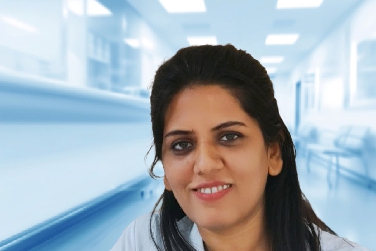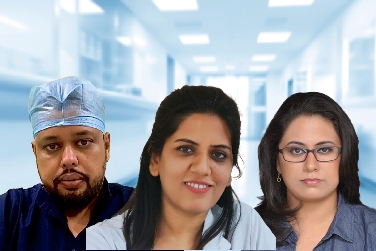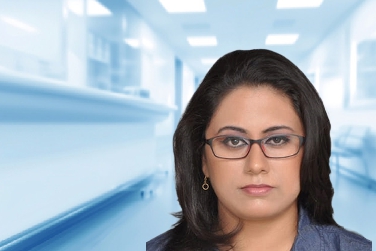
Bipolar disorders are mental health conditions characterized by periodic, intense emotional states affecting a person's mood, energy and ability to function. These periods, lasting from days to weeks, are called mood episodes. Mood episodes are categorized as manic or hypomanic episodes when the predominant mood is intensely happy or irritable, or depressive episodes, when there is an intensely sad mood or the ability to experience joy or pleasure disappears. People with bipolar disorder generally have periods of neutral mood as well. When treated, people with bipolar disorder can lead full and productive lives. Bipolar disorder commonly runs in families. 80 to 90 percent of individuals with bipolar disorder have a relative with bipolar disorder or depression. Environmental factors such as stress, sleep disruption, and drugs and alcohol may trigger mood episodes in vulnerable people.

![]() Manic Episode - A manic episode is a period of at least one week when a person is extremely high-spirited or irritable most of the day for most days, possesses more energy than usual, and experiences changes like lack of sleep, faster speech, distractibility, impulsive behaviour etc.
Manic Episode - A manic episode is a period of at least one week when a person is extremely high-spirited or irritable most of the day for most days, possesses more energy than usual, and experiences changes like lack of sleep, faster speech, distractibility, impulsive behaviour etc.
![]() Hypomanic Episode - A hypomanic episode, or hympomania, is characterized by less severe manic symptoms that need to last only four days in a row rather than a week. Hypomanic symptoms do not lead to the major problems in daily functioning that manic symptoms commonly cause.
Hypomanic Episode - A hypomanic episode, or hympomania, is characterized by less severe manic symptoms that need to last only four days in a row rather than a week. Hypomanic symptoms do not lead to the major problems in daily functioning that manic symptoms commonly cause.
![]() Major Depressive Episode - A major depressive episode is a period of at least two weeks in which a person experiences intense sadness or despair or a loss of interest in activities the person once enjoyed and experiences symptoms like guilt feeling, feeling of worthlessness, fatigue, increase or decrease in sleep, increase or decrease in appetite, difficulty in concentrating etc.
Major Depressive Episode - A major depressive episode is a period of at least two weeks in which a person experiences intense sadness or despair or a loss of interest in activities the person once enjoyed and experiences symptoms like guilt feeling, feeling of worthlessness, fatigue, increase or decrease in sleep, increase or decrease in appetite, difficulty in concentrating etc.
Treatments
Bipolar disorder symptoms commonly improve with treatment. Medication is the cornerstone of bipolar disorder treatment, though talk therapy (psychotherapy) can help many patients learn about their illness and adhere to medications, helping prevent future mood episodes. Medications known as “mood stabilizers” are the most commonly prescribed type of medications for bipolar disorder. Since bipolar disorder is a chronic illness in which mood episodes typically recur, ongoing preventive treatment is recommended. Bipolar disorder treatment is individualized; people with bipolar disorder may need to try different medications before finding what works best for them.

When it comes to treatment for various psychological and psychiatric conditions including Bipolar Disorder, whether in adults or children Dr Rashmi Mishra at Palaash Hospital is one of the best. With vast experience in treatment and management of various mental disorders Dr Rashmi Mishra has created a stature for herself. Patients from all across Bihar, West Bengal and North East India come to her for treatment of various conditions including bipolar disorder. The best part about treatment of Dr Rashmi Mishra is that she will try and understand the root cause of the problem and try to address it through various counselling sessions. For her medications are just the support to quicken the treatment and make it more effective for the best results.

Palaash Hospital at Katihar is promoted by a group of doctors including Urologist Dr Subhabrata Ganguly, Psychiatrist Dr Rashmi Mishra, Pediatrician Dr Nivedita Mishra and Physician Dr K.K.Mishra. The idea behind Palaash Hospital is to create a world class healthcare facility where the patients get the complete range of healthcare under one roof. Palaash hospital will continue to add to its infrastructure by investing in cutting edge technology with every passing year.

Palaash Hospital offers medical and surgical treatments in the fields of Urology, Nephrology, General & Laparoscopic Surgery, Obstetrics & Gynecology, Pediatrics, Neonatology, Psychiatry and Internal Medicine. The hospital has round the clock services for emergency conditions. OPD services are available from 9 am to 2 pm and again from 5 pm to 7 pm. The hospital has the facility of ICU, Ward and Private Single Rooms. You get reasonable pricing with us for all the treatments.

The Hospital has deployed cutting edge technology in order to achieve superior medical and surgical outcomes. The hospital has state of art operation theatres with Laparoscope and Ureteroscope. The hospital has the facility of Laser machine for kidney stone treatment. Most of the surgeries are done using minimal access technique. The hospital stay is short and the recovery is much quicker. Pathological services are provided by NABL accreditated Maurya Labs.

PHONE ASSIST
|
|
OUR LOCATION |
|
| EMAIL US |